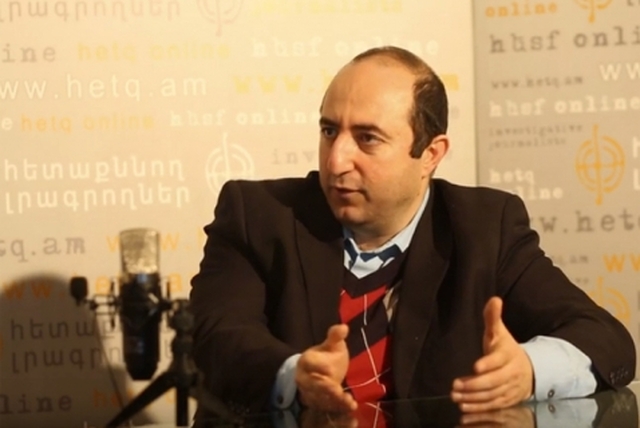“Hetq” Studio: Single source procurement or how to waste state resources
Public procurement plays a great role in in the economy of Armenia. The total volume of procurement conducted by state bodies in Armenia in 2014 made nearly 16.4%, about 202 billion AMD (together with the procurement by communities and SNCOs made 252 billion AMD). Because of much money circulated, public procurement sector may be prone to abuse and corruption. The studies of Transparency International Anticorruption Center (TIAC) verify of them. On that regard Artak Manukyan, Economist and Procurement Expert of TIAC was the quest of “Hetq Studio.” He presented the findings of TIAC’s publication “Monitoring Report on Public Procurement 2014-2015”, in particular, single source procurement, that made 65% of overall procurement and was out of competition.
The study addressed trends of public procurement development, following the systemic problems inherited from past. Due to 15% price preference to participants from Eurasian Economic Union member states for procurements in the amount of up to 70 million drams, one may claim that the legislation of public procurement of Armenia regressed. Artak Manukyn not only answered the questions why procurement sector failed to develop, what obstacles it encountered and other issues, but also presented TIAC recommendations, including the one to create general portal for EEC public procurement, which will enable to increase accountability and transparency.
As for single source procurement, both the reports of Procurement Support Center and contracts downloaded from Single source procurement disclosure section of www.e-gov.am website served as database for the report. However, there is a deep-rooted problem exposed during filtration process. Filtration shows data of fewer single source procurement contracts than there are in data base.
We seem to deal with imitation reform when there is no political will. State procurement is conducted among fewer number of entities and there is growth of concentration degree. Currently there are nearly 168 participants that win all lucrative tenders. The field is divided, and state policy fails to try to break supremacy in market that case difficulties for new players. There is a problem of improper law enforcement. Armenia, as World Trade Organization’s Government Procurement Agreement country, has good laws but it failed to create institutes and develop them.





